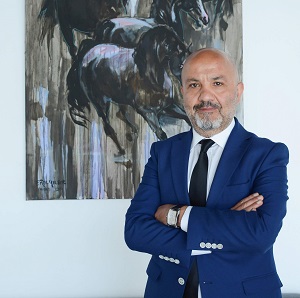
The news that the coronavirus that causes COVID-19 has mutated in Europe, especially in England, caused concern all over the world. Scientists' evaluations about the mutated coronavirus revealed that the virus could be 70 percent more contagious. Although it was warned that the new strain was spreading much faster, there was no evidence that it caused a more severe disease or had a higher mortality rate. How the virus will affect the effectiveness of developed vaccines has started a new discussion.
Making evaluations about the coronavirus mutation emerging in the UK, Near East University DESAM Institute Director Prof. Dr. Tamer Şanlıdağ said, “Viruses mutate over time. This is a natural and expected process. The coronavirus can mutate thousands of times due to its nature. Among these, some mutations are important. Some mutations can affect the binding of the virus to the cell, increasing its infectiousness. More data are needed to evaluate the probability that these mutations have a negative impact on the efficacy of RNA vaccines." Prof. Dr. Şanlıdağ also said, "We cannot say anything clear until there is definitive data that the new types, which has become 70 percent more contagious, will render vaccines ineffective."
Stating that he named the mutated new coronavirus variant as VUI - 202012/01, Prof. Dr. Şanlıdağ also pointed out that important mutations are encoded as N501Y, Y145, P681H and 69-70. Apart from the UK, the new virus was also seen in the Netherlands, Denmark, Belgium, Italy and Africa.
What should we do?
Noting that the new mutation created a worldwide panic wave, Prof. Dr. Tamer Şanlıdağ emphasized that the mask and social distance rule should be considered in order to prevent the spread of the virus, regardless of variant or old virus. Prof. Dr. Şanlıdağ said, "We must continue to comply with social isolation, use our masks and pay attention to distance."